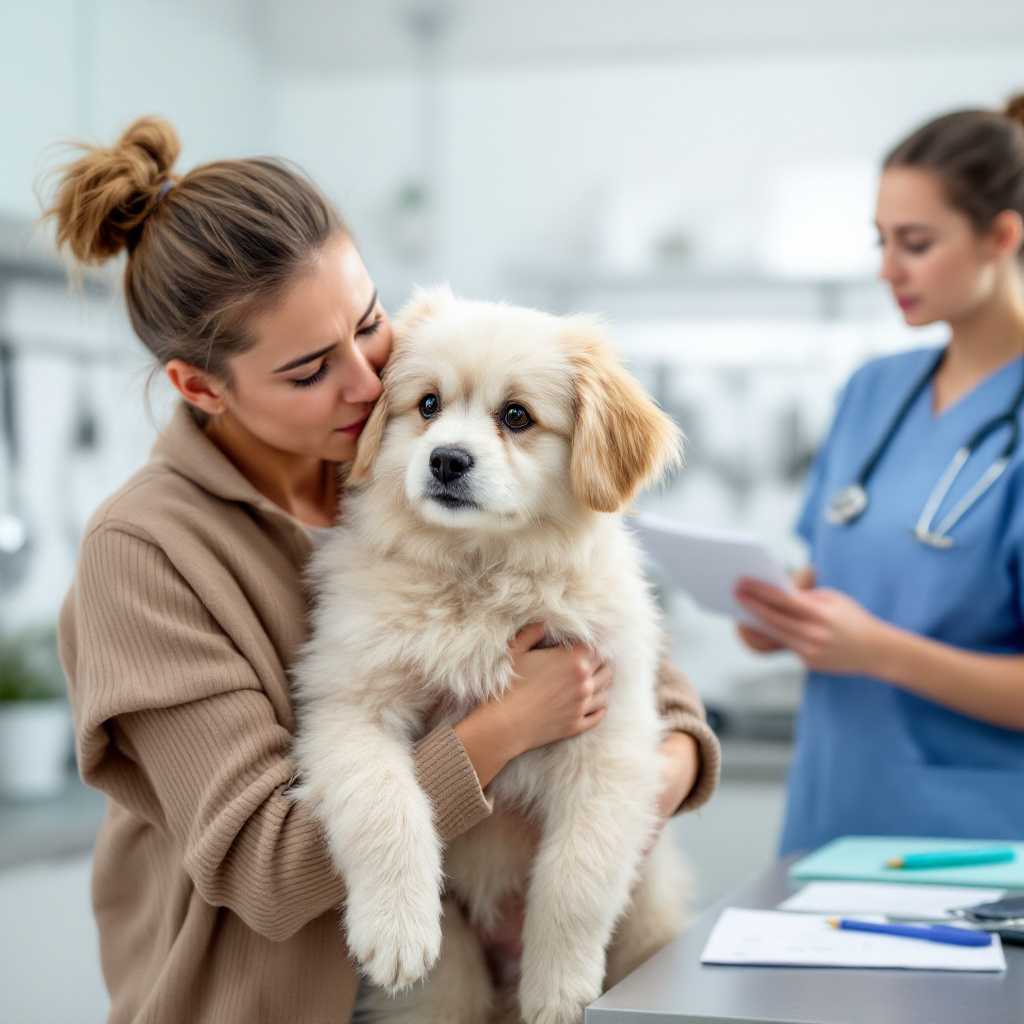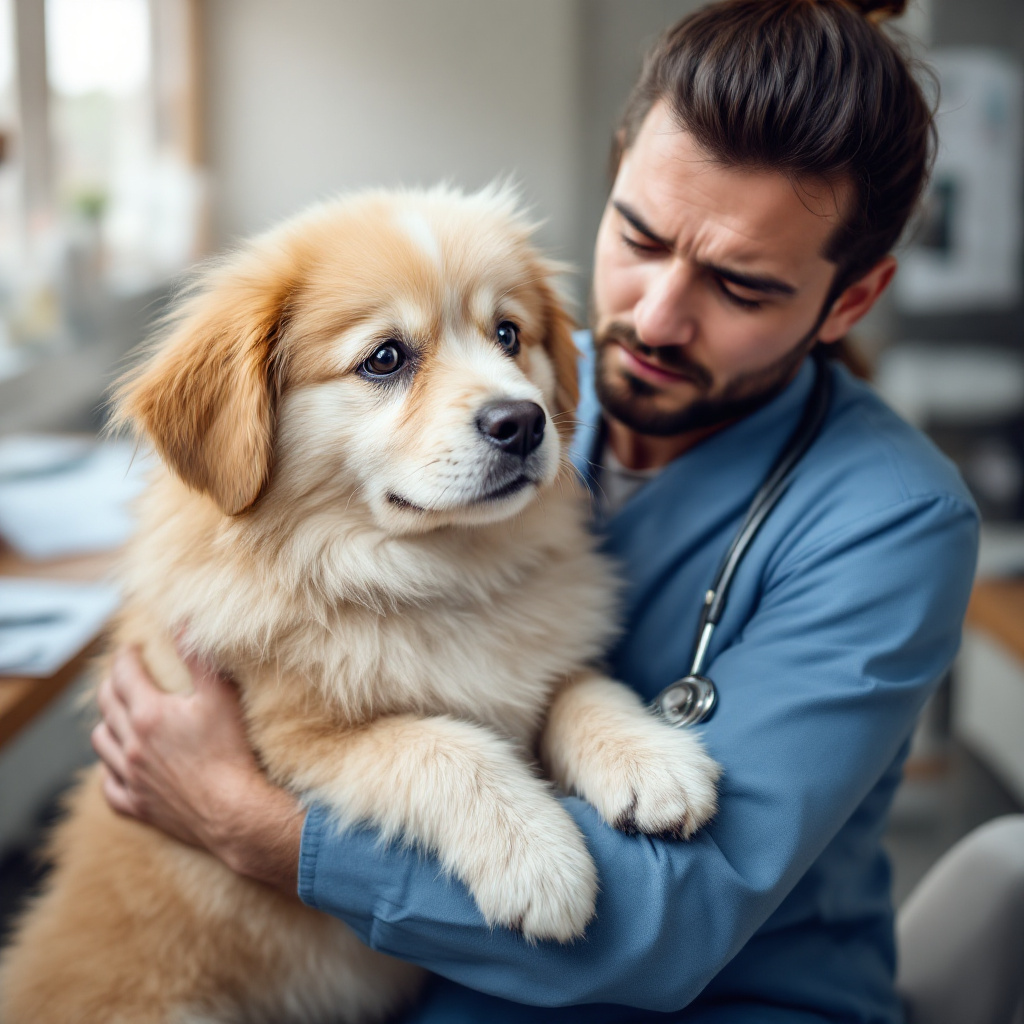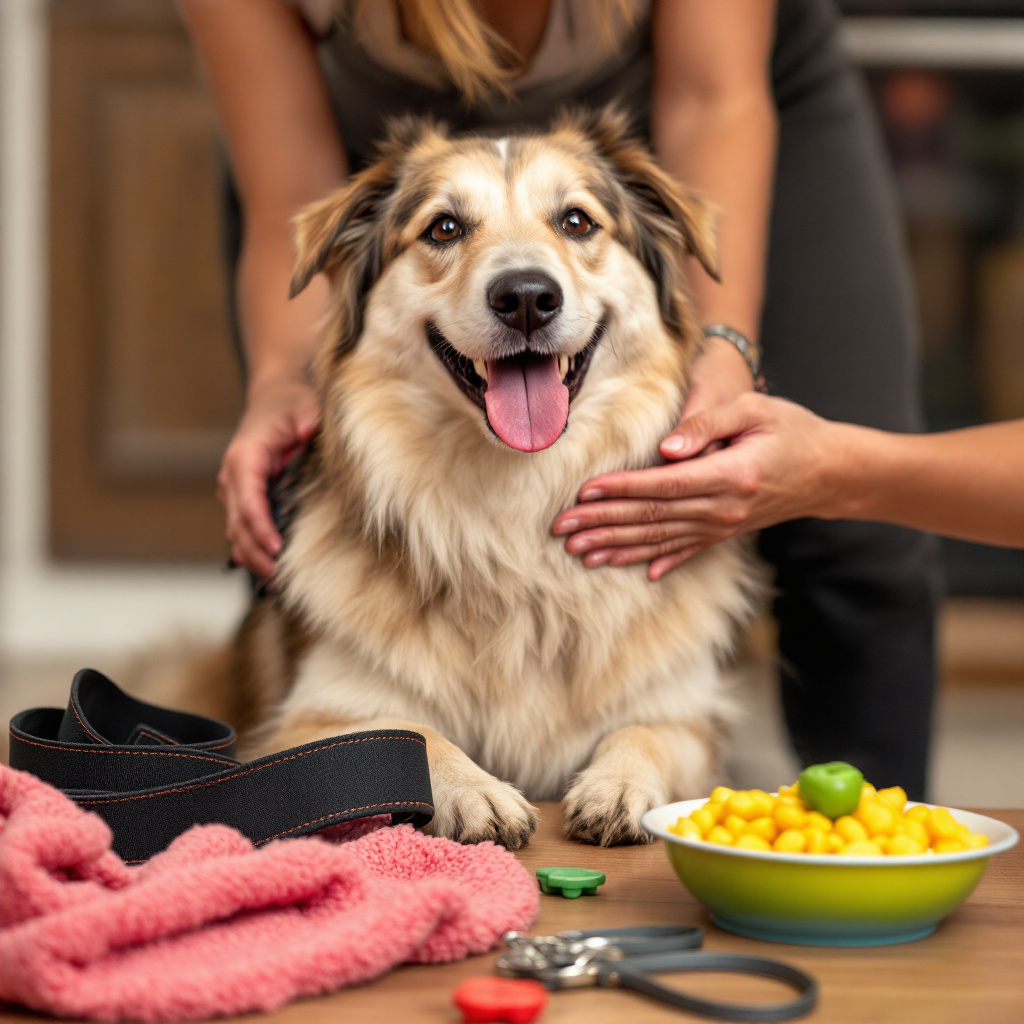The real vet expenses: What dog owners should know
Dog love is something very special. Their sniffy noses put a smile on everyone's face and their loyalty is unrivalled. But as well as joy and fun, being responsible for a dog comes with financial responsibilities that shouldn't be underestimated, especially when it comes to vet expenses. In this article, we take a closer look at the veterinary expenses that potential or existing dog owners may face and how they affect the overall cost of dog ownership.
Costs relating to your dog's health
Before we dive into the details, let's be clear: A vet visit is not a walk in the park. Don't be fooled into thinking that the initial cost of a dog is the only financial factor you need to consider. In fact, vet expenses can be a significant line item in your budget. Many people often only think of routine check-ups, but there are many unexpected expenses lurking in the depths of dog health.

Routine visits: more than just a check-up
A healthy dog undergoes several routine check-ups throughout the year. These visits are the basis for a long, happy life for your four-legged friend. But what do these routines include?
- Annual health check-up: This comprehensive examination ensures that all bodily functions are working optimally. Your vet will check your dog from snout to tail.
- Vaccinations: Vaccinations are crucial to protect your dog from dangerous diseases such as rabies or distemper. There is usually a vaccination schedule that is tailored to your dog's stage of life.
- Deworming: Parasites such as worms are unpleasant and can cause considerable damage to your dog. Regular worming is essential.
A potential dog owner must take these costs into account when considering adding a four-legged friend.
And then the unforeseen emergencies happen
Tragically, emergencies cannot be planned for. They often sneak up on you when you least expect it. Maybe your dog runs after a squirrel and injures himself or eats something he doesn't like.
Emergency visits to the vet can be financially challenging and require quick action. Whether during the course of the day or in the middle of the night, quick medical interventions can save lives, but they often come with a hefty price tag.
These emergencies usually include
- Accidents and injuries (e.g. broken bones)
- Acute illnesses (e.g. gastrointestinal problems or poisoning)
- Operations or more intensive treatments
Costs and insurance: A rescue tyre in an emergency?
So, let's be honest: the question that's probably on your mind right now is how to keep these vet expenses under control. One option that many dog owners consider is health insurance for dogs. But are they really worth it?
Pet health insurance: Yes or no?
While some swear that insurance has saved their pet, others feel discouraged by high premiums. As with all insurance issues, the benefits depend greatly on the individual case. Here are some considerations that might help you make a decision:
- Scope of cover: What is covered? Emergencies or routine examinations?
- Premium amount: How high are the monthly costs compared to the possible veterinary expenses?
- Deductibles: How much do you have to pay yourself in the event of damage?
- Exclusions: Are there any breed-specific illnesses that are not covered?
Sometimes insurance is the lifeline you don't need - until you suddenly need it. That's why it's worth comparing offers and weighing them up carefully.
Racial differences: Why race matters
Vet expenses vary not only by type of treatment, but also by your dog's breed. Certain breeds are more prone to health problems. For example:
- Great Danes: Known for stomach twisting, which can require immediate surgical intervention.
- English Bulldogs: Often suffer from breathing problems or hip dysplasia.
- Poodle: Prone to eye problems or epilepsy.
Nevertheless, mixed breeds often have more robust health due to their genetic diversity. No matter which breed you choose, it is important to inform yourself in advance about possible health risks typical of the breed and factor these into your budget.
Planning provisions and setting priorities
No dog owner wants to lie awake at night worrying about unexpected veterinary expenses. That's why smart planning is essential. So how can you best prepare yourself?
- Create a monthly savings budget specifically for veterinary expenses.
- Always keep your dog's medical records to hand and up to date.
- Build up a network of experienced dog owners who can share their experiences and recommendations.
- Be open to different insurance options or alternative savings models.
Knowing that you are well prepared can help to alleviate future financial burdens and create more time for the essentials - enjoying your dog.
Conclusion: prepared is half the battle
The truth is, having a dog is a big commitment - emotionally and financially. Veterinary expenses are an essential part of dog ownership that shouldn't be taken lightly. Whether you're a veteran or new dog owner, the key is to be prepared and make informed decisions. If you're prepared, your dog will be with you happily for a long time - and that's priceless, after all.
FAQs: Frequently asked questions about vets
What are the typical tasks of a vet?
As a vet, you will mainly care for sick or injured animals, often focussing on pets and farm animals. Your tasks include examining, treating and vaccinating animals. Vets are often also responsible for carrying out various operations, whether routine or emergency.
How do vets contribute to the protection of animal health?
Veterinarians combat animal diseases and epizootics through preventative measures. This includes examining live animals for slaughter and checking the hygienic conditions in slaughterhouses and processing plants. They are also able to carry out meat inspections and examine tissue samples or animal carcasses. This helps to recognise diseases at an early stage and prevent them from spreading.
What specialisms can a vet work in?
Veterinarians can specialise in different areas depending on their interests and training. Some of the most common specialisations include:
- Surgery: focussed on surgical procedures and treatments.
- Public Veterinary Services: Refers to the management and control of animal health and food safety on a broader social level.
- Animal nutrition: deals with the feeding and dietary needs of animals.
- Animal welfare: Advocates for the welfare and humane treatment of animals.
- Behavioural science: Analyses and treats the behaviour and psychological problems of animals.
- Dentistry for horses: Special treatments and care of the dental and jaw system in horses.
Author
-

David is a passionate aquarist with more than 20 years of experience in setting up and maintaining freshwater and saltwater aquariums. He specialises in the biodiversity of aquatic ecosystems, aquascaping and the species-appropriate keeping of aquarium fish. His articles on haustierewissen.de are a treasure trove for aquarium enthusiasts looking for sound advice and creative ideas for their underwater worlds.
View all posts




